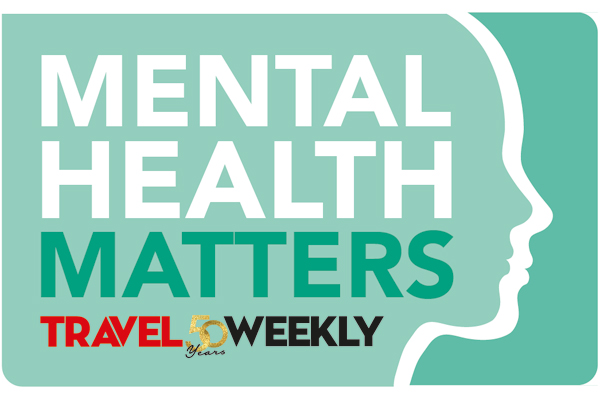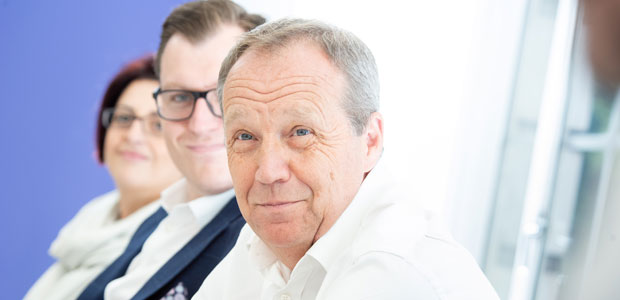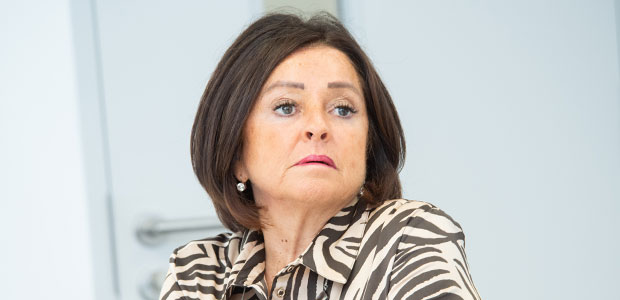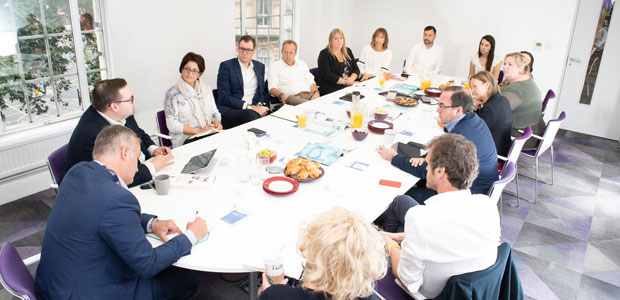Operators, agents and a mental health charity representative discussed employer responsibilities in a session held in association with the AWTE. Natalie Marsh reports
A few sobering statistics set the scene for Travel Weekly’s Mental Health Matters roundtable discussion last week.
Chris O’Sullivan, head of business development and engagement at the Mental Health Foundation, said in any given week one in six people experience a mental health problem.
More: Gallery from the event
In addition, 300,000 people in the UK leave work due to mental health and 6,000 people commit suicide every year, with middle-aged men and young women among the most vulnerable.

“A couple of years ago we did an economic analysis of value added by people with mental health problems who are working. It’s about £226 billion a year, 12.1% GDP,” O’Sullivan said.
He told the round-table the mental health at work agenda is not just addressing employees with problems but “creating an environment where people with mental health problems can thrive”.
“It’s equally about addressing the nature of work, whether that’s specific to an industry, or the work in general, to maximise and protect good mental health,” he added.

The scale of the UK’s mental health problems is becoming more widely appreciated as younger generations and influencers challenge outdated stigmas.
But what about in travel, a sector that has the outward appearance of being a fun and happy place to work, but has its fair share of stressful roles, based in offices, shops or at home often in disparate locations across the country and abroad?
As one of the UK’s biggest homeworking agencies, Travel Counsellors understands the responsibilities it has for its agents’ wellbeing, said Karen Morris, the firm’s operations director.
“We’ve got 1,800 homeworkers,” she explained. “If you think about it, they’ve often moved away from an office environment to, all of a sudden, working from home.
“For some people, that can be a real eye-opener, because they don’t have that social engagement anymore with their colleagues.”
Meanwhile, for high street giant Tui, having a workforce in hundreds of branches across the country can also prove difficult when tackling the challenges of employee wellbeing and mental health.
And given the high proportion of women who work in travel retail, one specific issue high on the agenda is when employees return to work after maternity leave.
Belinda Vazquez, Tui UK and Ireland retail director, said: “It’s [about] making sure that when they come back to work, they’ve got the right support. The fact that they are dispersed across the whole of the country does pose quite a geographical challenge. But for us, it’s about keeping it on the agenda.”
There is another dimension to travel that makes having a duty of care for employees’ mental wellbeing an even bigger challenge – when they are based abroad.
Inghams’ parent Hotelplan has hundreds of often young reps posted across the world either permanently or seasonally. Nicky Lyle, HR director, admitted it’s a real challenge.
More: Special Report: Travel Weekly Mental Health Matters
The Interview: Culture Trip founder Dr Kris Naudts
“A lot of people go overseas to escape problems that they’ve got here,” she said, adding that “a lot of the things they’re trying to escape catch up with them” when they are abroad.
However, in consumer-facing roles based overseas, it’s not only employees’ mental health problems that may need addressing.
“When you think about customers, the first thing people say when you’re having a tough time is ‘you need a holiday’,” pointed out Vazquez.
“So actually, the amount that goes on overseas from a customer point of view that those young reps have to deal with is extraordinary.”
In a sector that offers relatively low pay levels or commission-only contracts, stress related to financial worries is also a potential trigger.
Derek Jones, managing director of Kuoni and chairman of Abta LifeLine, said 80% of the problems the industry’s benevolent charity deals with are related to mental health.

Pictured: Derek Jones, Kuoni
Staff need to know someone cares
Travel firms are implementing policies and procedures focused on looking after employee wellbeing and mental health, the round-table heard.
Mental health champions and first aiders are becoming commonplace as the importance of having people others can turn to if they need help or guidance is becoming recognised.
Gemma Garvey, head of HR and training at Cosmos, said: “It makes it easier for people who need support if they can go to people at all levels of the business.
“They don’t necessarily want to go to their manager, and not always HR as well.” For those who work out of the office, technology is being adopted to keep people connected. “We have lots of ways of communicating digitally,” said Travel Counsellors’ Karen Morris.
Morris added mental health first aiders interacting with homeworkers “can pick up on something that might otherwise go undetected”.
Communicating by phone or email means signs of problems can often not be apparent, so video chat is being used by Tui, said Belinda Vazquez.
“Seeing someone and their body language and how they’re interacting with you…is quite important when you’re having those conversations,” she said.
In May, Travelzoo ran a May is for Me campaign, promoting wellbeing in the workplace with nutritional and health advice, talks in the office and walks around a nearby park.
Meditation and yoga sessions were among the most popular, said James Clarke, UK general manager at the deals publisher.
“Now we can look at what we did and go further by incorporating it into our business,” he said. Hotelplan’s most-effective wellbeing initiative was a bring your dog to work day.
“Stress levels in the office on days when pets are there compared to when they were not were vastly different,” said Lyle.

Pictured: Karen Morris, Travel Counsellors
‘We’re a stepping stone to getting help’
While work can play a role in mental health and wellbeing, how much responsibility should employers take on for their staff?
Dr Kris Naudts, former psychiatrist and chief executive of Culture Trip, said: “Work clearly is an important part of your life, you’re there at least eight hours a day, five days a week.
“But it’s not all your life and a lot of things happen before you join your employer and things keep happening around you when you’re in employment.
“We have a duty of care, but we’re not the only ones as employers, we’re part of the mix. And we must avoid making it worse, but we cannot possibly be the only ones to solve it.”
Advantage Travel Partnership chief executive Julia Lo Bue-Said, said she accepts the responsibilities she has as an employer, but they can only go so far.
“Business plays a vital role because you’re there for so long each day, but it’s not just the business’s responsibility,” she said. “We’re a stepping stone to recognising and helping.”
One unintended consequence for employers who implement a wellbeing agenda is raising the bar of expectations among its workforce.
Derek Jones at Kuoni said the impact of its initiatives aimed at looking after staff are not reflected in regular surveys it carries out.
“The more you do, the more people take for granted and the more they expect,” he said.
“Every year we did the survey, every year we did more things and every year we’ve got a lower score [for wellbeing].”
“The bar moves up so quickly.” However, rather than being deterred to do more, “that has spurred us into more action,” he said.
Naudts said Culture Trip’s young workforce has nothing to compare its extensive employee wellbeing programme with.
“They know nothing else but Culture Trip, and therefore whatever we do on the positive side is normal,” he said.
Naudts said Culture Trip’s young workforce has nothing to compare its extensive employee wellbeing programme with.
“They know nothing else but Culture Trip, and therefore whatever we do on the positive side is normal,” he said.
Michelle Laverick, head of sales, marketing and membership at HF Holidays, said while inwork initiatives are essential, it is when people are made redundant that they are left on their own. Laverick, who is also vice-chair of the Association of Women Travel Executives, said: “One minute they’re in work and they’re invited to all sorts of events then, they’re not. And that’s when they lose their confidence.

Talking helps to address stigma of mental health
Encouraging employees to share their own experiences is one of the best ways to address stigma associated with mental health.
Only half of people diagnosed with a mental health problem disclose it to their employer, according to the Mental Health Foundation.
And only half of those reported a positive experience of doing so.
“Storytelling in an authentic way in a safe environment is extremely important,” said Chris O’Sullivan from the charity. Nicky Lyle of Hotelplan said senior team members had been open about their own experiences. “We think that giving a voice from board level down really helps,” she said.
However, in firms where employees are of all ages, there may be a generational difference in who wants to talk.
“We are working with 18-year-olds up to 75-year-olds,” said Laverick of HF Holidays. “A 75-year-old talking about challenges that they’ve got in their life is very different from a generational perspective.”
O’Sullivan cautioned that storytelling can sometimes fail to paint the whole picture. “I sometimes have a concern that only the sanitised versions reach the surface. Balancing stories of those with mental health issues with stories of other challenging aspects of life, such as caring for elderly parents and relationship breakdowns, can help to draw out the authenticity.”
‘Working environment affects staff wellbeing’
 Travel executives at the roundtable agreed the working environment employers provide plays a vital role in their wellbeing.
Travel executives at the roundtable agreed the working environment employers provide plays a vital role in their wellbeing.
Kuoni, Travel Counsellors, and dnata Travel have, in recent years, moved to more modern offices.
Dnata’s John Bevan said moving its headquarters from Preston to Leyland, Lancashire, was an opportunity to design an office space that promotes employee wellbeing, among other initiatives.
The new office has state-ofthe-art air-conditioning, plenty of natural light and is single-use plastic-free.
Bevan said dnata kept staff informed throughout the move. “On the day we announced it, we put everyone on coaches to come down to this building site,” he said.
New starters are “taken on an induction tour to understand how the building works.”
Bevan added employees are encouraged to eat away from their desks and walk to access printers, so they are encouraged to socialise with colleagues.
While open-plan offices with plenty of communal areas are increasingly popular among staff, Kuoni’s Jones said firms should be aware that one size does not fit all.
“The assumption is that everybody is going to sit at the tables and get on. But it’s really interesting the personality types that reveal themselves in that kind of office space.”
As well as having communal areas, there are quiet spaces in Kuoni’s offices for those who want to take time for themselves.
“We tend to default and put everybody into the same category,” he said. “The reality is, they’re not.”

My story – Michelle Laverick
Head of sales, marketing and membership, HF Holidays, and vice-chair of the Association of Women Travel Executives
On August 27, 2017, in the blink of an eye, my life changed for ever. My husband, soulmate and best friend died suddenly in a tragic accident. Why him? He was my rock! How could I go on without him? How could I bring my girls up without him? How could I tell them?
Breaking the news to our two beautiful daughters was the hardest thing I will ever have to do. Not only had my world had fallen apart, so had theirs.
The first few weeks of this journey are a complete blur. I was on autopilot and everyone was telling me what I needed to do next. This lack of control knocked my confidence massively. I followed instructions, built protective barriers and buried all my emotions.
The days leading up to the funeral were the worst. I needed to write a eulogy for my husband. I’d committed to doing it, but the reality of writing it was very different.
In the months that followed, however busy we were, the feeling of loss and loneliness was immense. An old friend sent me a link to a charity called WAY (Widowed and Young) – I was finally in touch with others who were in a similar situation.
Sharing experiences and how I was feeling helped and it made me realise that my all-round health was vital to get me through this journey. My happy place is escaping to the mountains. The fresh air and exercise are my perfect medicine.
Over the past 22 months, there have been many ups and downs and some dark days. Life has a completely new perspective now, and happiness is at the heart of it. After experiencing what I have, I believe I can now offer so much support to others. Just having someone to talk to who can understand, be supportive and show they care can make all the difference. As the sayings go, ‘it’s good to talk’ and a ‘trouble shared is a trouble halved’.
If you, or someone you know, has been affected by a mental health issue and you need further help and support, contact the Samaritans free of charge on 116 123.
More: Gallery from the event
